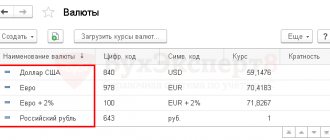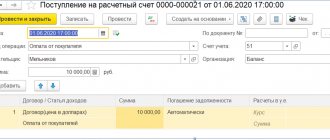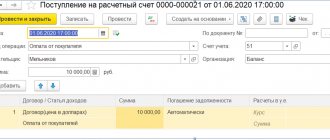Many Russian firms prefer to enter into commercial contracts with domestic partners in foreign currency. Legislatively, this possibility is provided for by Federal Law No. 173-FZ “On Currency Regulation and Control” of December 10, 2003. However, it is prohibited to make payments under an agreement between residents of the Russian Federation in euros and dollars (Article 9 of Law No. 173-FZ).
Residents and non-residents can pay bills in foreign currency (Article 6 of Law No. 173-FZ). Therefore, all payments for contractual obligations between domestic companies are made in Russian rubles.
How to open a European account remotely: ways to open an account
There are two main ways to open an account remotely:
- Through a branch of a foreign bank in your country - you need to open an account not in the branch, but abroad. You need to ask your employees about this separately.
- Via the Internet, in most cases with the help of experts who provide similar services - this includes both a recommendation of a new client to the bank and professional assistance in preparing documents and submitting an application.
The third method, which is not more widespread among banks, but is quite accessible in payment systems, is opening an account directly through the institution’s website.
Features of drawing up a foreign currency payment order
The emergence of “bank clients” has replaced paper forms in the banking sector. Although paper forms are still used, for example, to print and create a backup copy.
The payment order form and the procedure for filling it out are necessary for such an area as foreign exchange transactions. Payment in foreign currency must meet the requirements:
- Russian legislation on currency regulation and control;
- international standards ISO (International Organization for Standardization);
- standards of the SWIFT (Society for World Wide Interbank Financial Telecommunications) system.
Differences between the European account for individuals and legal entities
Both individuals and legal entities can open an account abroad, including in Europe.
Moreover, you can open an account for any purpose: for payments, investments or savings. The main difference is that many more transactions can take place through a company's current account. Individuals in most cases cannot use their foreign account for commercial activities. A large number of transactions will arouse suspicion, especially if the bank was not warned about this in advance.
The next difference is the documents.
Individuals are required to provide:
- A certified copy of your passport;
- Proof of residential address (utility bill);
- Proof of the legality of the origin of funds (tax return, property purchase and sale agreements, etc.);
- In some cases, banks ask for recommendations from other banks, from professionals, and from the applicant’s resume.
Companies can open an account if they provide:
- Statutory documents (memorandum, charter, etc.);
- Personal documents of the owners and directors of the company;
- Business plan and reporting (if any);
- Description of the company's activities;
- Availability of local clients and contractors - in some countries it is generally impossible to open an account without this;
- Documentary proof of presence in the country of registration (substance) - many European banks require a lease agreement, an agreement with employees, etc.;
- Information about future activity on the account: turnover, average transaction size; also interested in major partners, contractors and large clients.
In both cases, the documents must be translated into English or the language of the country in which you are opening the account.
In principle, the English translation is sufficient and universal. Some documents require certification and/or apostille. Both corporate (business) and personal accounts can be opened remotely or with a personal visit. This largely depends on the bank you choose.
For example, there are banks that are ready to open accounts remotely only for companies. And there are those who are ready to work remotely with everyone - after a thorough check, of course. When opening an account remotely in Europe, you need to understand: opening an account will not be easy, and the more complex the income structure and the higher the risks, the higher the chance of refusal.
The number of banks that are ready to open accounts for non-residents remotely is falling. Except that the coronavirus epidemic has somewhat reversed this process: some banks have agreed to accept clients if additional document requirements are met. For example, put an apostille on almost everything that you send to the bank for review.
But this depends on the specific financial institution.
There are payment systems and we will talk about their differences a little below.
What you need to know
You must understand that all the nuances
You will need to find out information related to opening and using an account yourself. Let's look at what you should know in advance:
- Risk. When opening remotely, many contracts are drawn up through an intermediary. Moreover, his services are paid at the beginning of the transaction. Such an intermediary may deceive or provide false information.
- Support service. Many banks do not have support specialists who are ready to provide advice in Russian. It turns out that if you don’t know a foreign language, it will be extremely difficult to receive information or resolve controversial issues.
- Refill. If you want to transfer an amount of more than 50,000 rubles, be prepared to present a certificate that will confirm their origin. If you work unofficially, you will need to write an explanatory note addressed to the director of the bank, indicating who gave this amount and when.
- Tax notices. It is mandatory to notify the tax organization about the opening of an account and the amount placed on it. If you don't do this, you will be fined.
Pre-approval for opening accounts in Europe
The risk of refusal when opening an account in Europe is quite high.
Especially if we are talking about a remote procedure. Inspectors can get caught on any typo or inconsistency and, instead of figuring it out, simply refuse to open an account. To reduce the risk (as well as the costs of sending documents and issuing new ones that expired while you were waiting for a decision), the pre-approval service is used.
The point is that you first send documents in electronic form (photos, scanned copies), a bank specialist checks them and gives a preliminary decision. Usually documents are reviewed in a relatively short time: from a couple of days to a couple of weeks. The cost of the service is several times lower than for an application to open an account.
As a result, if the application is rejected, you save time and submit an application to the next bank. If the answer is yes, then you send the originals and continue working. The risk of refusal still remains, but after pre-approval it drops several times (in our experience, after a positive pre-approval they can be refused due to the client’s unpredictable behavior and obvious errors in the documents).
Pre-approval is also used to open an account with a personal visit: before going to the bank, you receive a preliminary response from the bank, recommendations for additional documents, and set off on your way with a complete set.
Professional intermediaries also provide a pre-approval service: they communicate with the bank, check your documents, find out any inaccuracies and help correct them at the preparation stage. Plus, they can apply to two or three banks at once to increase their chance of success.
Types and codes of currency transactions
Appendix 2 of the Central Bank of the Russian Federation Instruction No. 138-I contains a list of transactions of residents and non-residents. It is used to process transactions and related documents. The currency transaction code in the payment order is indicated based on the data specified in the List.
Here are some codes in general form (the code for the type of operation group is not considered):
| Operation type code | Name of the type of operation | |
| 01 | 010 | Sale by a resident of foreign currency for Russian currency |
| 01 | 030 | Purchase of foreign currency by a resident using Russian currency |
| 11 | 100 | Payments by a resident in the form of advance payment to a non-resident for goods imported into the territory of the Russian Federation, with the exception of payments specified in group 23 of the List |
| 13 | 020 | Settlements by a resident in favor of a non-resident for goods sold on the territory of the Russian Federation, with the exception of settlements under codes 23110, 23210, 23300 of the List |
| 20 | 200 | Payments by a non-resident for work performed by a resident, services provided, with the exception of payments under code 20400, and those specified in groups 22 and 58 of the List |
IMPORTANT!
The type of currency transaction in the payment order is indicated in numbers.
The absence of a unified federal form of payment order for the transfer of foreign currency has led to the appearance in each bank of some differences in the details and procedure for filling out this document.
Another feature is that currently filling out almost every banking document is carried out through the “bank-client” application interface, which also differs from the type of similar program in another bank.
With this specificity in mind, let’s look at the procedure for filling out a payment order step by step, using the form from the first section of our article.
Foreign Account Notice
According to existing rules, Russian citizens are required to notify the tax service about opening a foreign account within 30 days.
Otherwise, you will have to pay a fine: 1,500-4,000 rubles for the first violation and 2,500-20,000 rubles for a second violation. Also, annually before June 1, it is required to submit a report on the movement of funds in the account. From 2021, new rules apply and now you do NOT need to report if the following conditions are met:
- The account is located in a country that is a member of the OECD or FATF;
- Savings abroad do not exceed 600,000 rubles;
- A bilateral agreement on the exchange of banking information in automatic mode (CRS) was signed.
Features of recalculation of monetary obligations from euros to rubles
The financial officer making payments in euros must first take into account the terms of the contract. Usually there are reservations regarding the date and rate of conversion of euros into Russian rubles.
If the agreement does not contain a condition for converting euros into rubles, payment of invoice obligations must be made at the exchange rate established by the Bank of Russia on the day of payment. This can be used as a guide in cases where the contract:
- There is no indication at what euro exchange rate should be recalculated;
- There is no reference to the date on which the settlement rate would be established;
- In both of the above situations.
Banks and payment systems in Europe for opening accounts remotely
As was said earlier, it is possible to open an account in a European bank remotely, but the choice is limited and the process is not easy.
Payment systems are much more loyal to foreigners. Payment systems are financial services that offer banking services: opening an account, transfers, currency conversion, and the like. These are fintech projects with special licenses.
Such systems allow you to get almost the same service as in banks, but faster and at more affordable prices.
To open an account, essentially the same set of documents is required, often scans are enough. The client is studied using the same algorithms. Therefore, they can refuse to open an account, just like at a bank.
Payment systems come in different profiles: some are aimed at the general public, while others prefer to work with IT projects or only with trading companies. There are even those who are ready to cooperate with offshore companies.
Choosing the right system (as well as the bank) will allow you to open an account faster and maintain it in the long term - at least because the institution will understand your business and your transactions.
Opening an account in payment systems takes from 1 day for individuals to a couple of weeks for legal entities. Sometimes it takes 10 working days, sometimes less, but in general, the time frame is much more predictable than that of banks, which can consider an application for 2-4-6 months and even after sending additional documents, they can refuse.
By the way, this is precisely the reason why they resort to the services of professionals - they help remove 90% of standard errors and find the remaining 10% that prevent opening an account in Europe - both in a bank and in a payment system.
An invoice for payment. Form and sample filling
An invoice for payment is a document that absolutely all entrepreneurs use in their work, regardless of what level they work at and what area of business they belong to. As a rule, an invoice for payment is issued after a written agreement is concluded between the parties, as an addition to it, but sometimes it can be issued as an independent document.
It is the invoice for payment that gives the buyer of goods or consumer of services grounds to pay for them. The invoice can be issued for both prepayment and post-factum payment.
European account for an offshore company?
An account for an offshore company has been a complex issue over the past few years.
It is often impossible to open an account for an offshore company in Europe: the bank warns at the entrance that it does not work with offshore companies or can open an account only for a certain one currency. However, there are some banks, for example in Macedonia or Luxembourg, that are ready to cooperate. In some cases, they can open an account in Europe if the first deposit to the account is 100,000 euros or more. But in general, banking in Europe is a difficult task for offshore companies.
This is where the mentioned payment systems come to the rescue. Again, not all of them accept companies from tax havens, but there are those that are willing to consider applications from risky clients.
If you are interested specifically in banking, then we recommend exploring Caribbean banks. Firstly, it is possible to open a company and an account in one country and this will relieve a lot of headaches. Secondly, they have extensive experience working with this type of company. A little later, when you have a payment history, reporting and trust, you can try and open an account in Europe, for example in Serbia: offshorensk.ru . Perhaps even remotely.
In the Caribbean, you can certainly open an account remotely.
Where to open a European account remotely?
Despite all the difficulties, it is possible to open an account in Europe. Below are a few countries with a brief explanation.
Open a European account in Latvia
In Latvia, it has been easy to open bank accounts since the early 90s.
This could even be done directly via the Internet. However, since 2021, opening an account for non-residents, in particular immigrants and owners of foreign companies from the CIS, has become much more difficult. They are considered risky clients. Way out? Large deposits, painstaking preparation, as well as opening a local company or representative office - this simplifies the issue of opening an account in any country.
Open a European account in Cyprus
Cyprus is another popular jurisdiction for opening accounts.
And again, until recently. After an audit by American specialists, Cyprus banks began to actively close existing accounts and make it difficult to open new ones. Cyprus has interesting payment systems for IT projects, but in general it is worth opening an account here if you are focused on a local business (company).
Open a European account in the UK
Opening a UK bank account for a foreign company that does not plan to operate in the UK is difficult. But there are good, reliable and extremely popular payment systems. Accounts are opened fairly quickly and operate reliably.
Open a European account in Portugal
If you want to open an account and work in peace, then you should think about Portugal.
The procedure for opening an account may seem confusing, but after it you can focus on business. At the same time, it is possible to open an account for offshore companies, although the main contingent of companies are from the EU and those that plan to one way or another work in Portugal.
Open a European account in Serbia
Serbia is not a member of the EU, but offers deposit insurance, and so far there is no CRS exchange, developed banking and the ability to open accounts remotely for local companies and branches. A particularly interesting structure is with branches: you can open it for a foreign company, including an offshore company, open an account for the branch, and all this will take a couple of weeks with proper preparation.
Open a European account in the Czech Republic
In the Czech Republic they don’t like to open accounts remotely; even local companies must have a local director so that no questions arise. But again payment systems come to the rescue - they work with companies all over the world and offer high-quality service.
Open a European account in Switzerland
Switzerland is a traditional banking jurisdiction.
Neutrality, quality service and banking secrecy have created an unshakable reputation. Today there are some changes, in particular, tax services have received access to banking data as part of an automatic exchange. However, the service remained at the same level. You can open an account in Switzerland remotely, roughly speaking, in two cases: if a specific bank supports remote account opening (and there are few of them, in fact, there is only one) and if you plan to invest large sums - from 500,000 euros. Then there is a chance that the banker will come to visit you himself. If the border is not closed.
But only companies that have a physical presence in the country of registration and maintain reporting can apply to open an account in Switzerland.
In general, Switzerland is an extremely interesting destination for opening an account, at least because of the vast experience, as well as access to a wide range of services and opportunities.
Open a European account in Luxembourg
This is a jurisdiction that is popular primarily among wealthy individuals. Here you can open an account for personal and corporate purposes. It costs more than other places, but the quality of service, privacy and experience of banks attract the attention of capital holders from all over the world.
Open a European account in Liechtenstein
And another European country where you can open a corporate account.
Companies from the UK, Gibraltar and other jurisdictions can count on the opportunity to open an account here, taking into account that, like other European banks, they are required to provide a documented presence in the country of registration. Of course, a lot of preparation will be required, but at least local banks don't immediately say no.
So how to open an account with Europe remotely?
To open an account in the EU, you need to consider:
- Where is your business located, what does it do, what is its turnover;
- Choose a bank or payment system that, in principle, opens accounts remotely and that suits your needs. You can look for them yourself or immediately contact specialists;
- Preparing documents is the most important step. Any mistakes here can instantly lead to failure;
- Actively cooperate with the financial institution, answer questions;
- After gaining access, act within the rules and, if something in your business changes or an atypical transaction is planned, warn about it in advance so that the account is not frozen or closed.
Have you opened accounts in Europe? Which banks are accommodating to non-resident business? What difficulties have you encountered? Write in the comments







